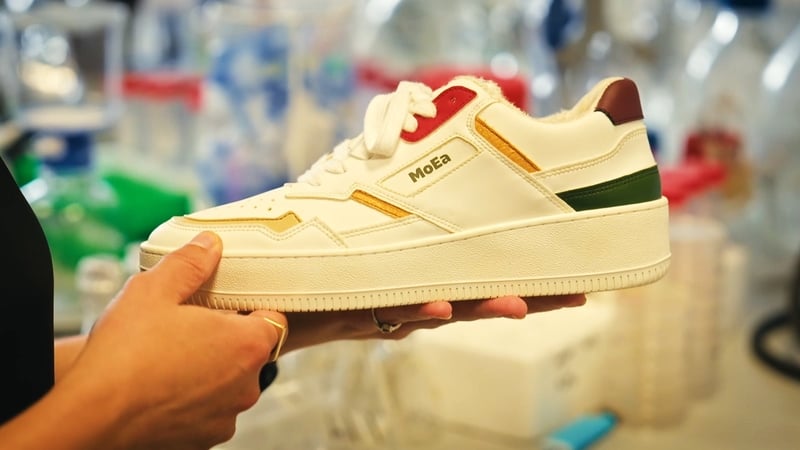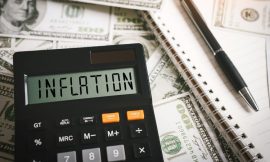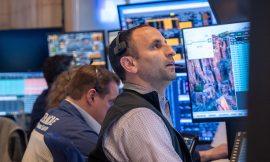Analysis: The scale of our agricultural, brewing and timber industries makes us uniquely positioned to develop a very strong bioeconomy
Ireland is one of the highest producers of plastic waste in the EU, with every person producing 64 Kg annually, nearly double the EU average. To make matters worse, we currently only recycle 30% of this plastic waste, making us one of the biggest plastic waste producers in Europe. It’s clear we need to recycle more, and developments including the deposit return scheme will help. But that’s not a complete solution to our problem.
Plastic can only be recycled half a dozen times or so before it degrades beyond practical re-use, but it will never disappear, at least not within a hundred thousand years or so. Instead, it breaks down into smaller and smaller pieces, eventually reaching the size of microplastics. These are microscopic particles that can make into our blood stream through drinking water. Once inside us, microplastics can cause real harm. Chemicals in fossil-fuel based micro-plastics have been linked to causes of a range of cancers and Alzheimer’s disease.
On top of that, there are serious issues from the harmful emissions from the production process for petrochemical-based plastics. Adding fuel to the fire, recycling is currently more expensive that creating virgin plastic.

Yet, plastic as a material remains extraordinarily useful. It’s versatile, durable, lightweight, waterproof, easily shaped and dyed. Just consider how often you touch an object made of plastic in a single day. Imagining a world without it is difficult.
But it is possible to imagine making plastic in a different way. In fact, scientists have already devised a process to make plastics, not from petrochemicals, but from organic waste. It’s called bioplastic, and it’s a material that’s just as versatile, but far more sustainable. Its production could become a multi-billion-euro industry, with Ireland is well positioned to lead the way.
How are bioplastics made?
Bioplastics are made by fermenting the sugars from organic waste to create lactic acid. The lactic acid can then be used as one of the building blocks a new type of plastic: one that is biodegradable. What’s so useful about this process is the incredible range of waste that can be used. If it contains starch and sugars, it can be converted into bioplastic. That includes green waste, such as grass and clippings, agricultural waste, waste from the timber industry and even waste left over from brewing and distilling.
From Futureville Ireland, How food from waste and wood processing can be used to create bioplastics
All these byproducts are in abundant supply right here in Ireland, meaning that, in Futureville, the solution to the plastic problem we face today could be right under our noses.
We could produce bioplastic in this country and use it to make the kind of single-use items that are filling our green bins today. Instead, they could go into our brown bins and be turned into compost. Alternatively, bioplastics could be added to traditional plastics at the recycling stage, extending the recycling life-cycle of petrochemical-based plastics.
Research projects like Grain-4-Lab at Dublin City University and BiOrbic, at University College Dublin, are looking at how to improve bioplastic production so that it can be implemented more efficiently at scale, and in a cost-effective fashion.
We need your consent to load this rte-player contentWe use rte-player to manage extra content that can set cookies on your device and collect data about your activity. Please review their details and accept them to load the content.Manage Preferences
From RTÉ Kids, The Ecolotion podcast meets Generation Glas, coordinated by BiOrbic, a group leading the way on climate action and the bioeconomy
However, bioplastics are likely to remain more expensive than their traditional counterparts. As consumers, we will have to accept paying a financial price, in place of an environmental price. One way to offset that cost will be to consume less, another is to invest into innovation to support the Green Economy.
The economic opportunity bioplastics present will be well be worth it. In Ireland, the scale of our agricultural, brewing and timber industries means we’re uniquely positioned to be able to develop a very strong bioeconomy within Europe.
The new bioeconomy is projected to be worth two to four trillion euro yearly by 2050. It will be a huge new economy, and Ireland could lead it. That’s why both the Irish government and the European Union have committed to investing in building the bio-refineries that will be necessary to make the transition.
In twenty-five years’ time in Futureville, we will be using plastics, probably in quite similar ways to today. But what will be different is where it comes from. Futureville will be able to take its place in a Europe wide bioeconomy, in which the entire continent turns organic waste into useful and sustainable bioplastic.
The first episode of Futureville is streaming now on RTÉ Player, and it continues Wednesday and Thursday on RTÉ One and RTÉ Player at 7pm.
Science Week on RTÉ is supported by Research Ireland/Taighde Éireann. For more information about Science Week on RTÉ, see www.rte.ie/scienceweek and go to www.scienceweek.ie for more events and information.
Follow RTÉ Brainstorm on WhatsApp and Instagram for more stories and updates
The views expressed here are those of the author and do not represent or reflect the views of RTÉ




